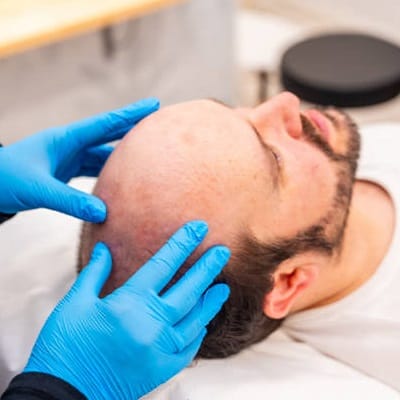
Hair loss, especially at the front line, can be a source of concern and frustration for many individuals. Unsurprisingly, a full head of hair is often associated with youth, vitality, and confidence. While surgical options like hair transplants in Islamabad have gained popularity, only some are comfortable with undergoing surgery or are suitable candidates for such procedures.
The good news is that various non-surgical options are available for restoring front-line hair that can yield promising results without the need for invasive procedures.
Understanding Front-Line Hair Loss:
Before delving into the non-surgical options, it’s essential to understand what causes front-line hair loss. Frontal hair loss is typically attributed to genetics, hormonal imbalances, ageing, and lifestyle factors. As we age, hair follicles shrink, and the hair growth cycle becomes disrupted, leading to thinner and weaker hair strands. While genetics play a significant role, environmental factors like stress, poor diet, and certain hair practices can exacerbate hair loss.
Non-Surgical Options for Restoring Front-Line Hair:
Topical Treatments:
Topical treatments like minoxidil (Rogaine) have been FDA-approved for treating hair loss. These solutions are applied directly to the scalp and can help stimulate hair follicles, increase blood flow, and promote hair growth. Minoxidil is available over the counter and can be an effective option for individuals looking to restore their front-line hair without surgery.
Low-Level Laser Therapy (LLLT):
LLLT is a non-invasive treatment that uses red light to stimulate hair follicles and improve hair growth. Devices like laser combs and helmets emit low-level lasers that can penetrate the scalp, promoting cellular activity and encouraging hair follicles to produce thicker, healthier hair strands.
Platelet-Rich Plasma (PRP) Therapy:
PRP therapy involves drawing a small amount of your blood, processing it to isolate platelets, and injecting the platelet-rich plasma back into the scalp. Platelets contain growth factors that can stimulate hair follicles and promote hair growth. PRP therapy has gained popularity as a non-surgical option for hair restoration.
Nutritional Supplements:
Certain nutritional deficiencies can contribute to hair loss. Supplements containing biotin, vitamins (such as B-complex vitamins), and minerals (like zinc and iron) can help improve the health of hair follicles and promote hair growth. Consult a healthcare professional before adding supplements to your routine.
Hair Care Practices:
Adopting a gentle hair care routine can significantly impact hair health. Avoid tight hairstyles that pull on the hairline, and use sulfate-free shampoos and conditioners to prevent excessive dryness. Be cautious with heat styling tools, as extreme heat can weaken hair strands and lead to breakage.
Hair Fiber Powders and Concealers:
Hair fibre powders and concealers are cosmetic solutions that can provide a temporary illusion of thicker hair. These products contain tiny fibres that adhere to existing hair strands, making the hair appear fuller and denser.
Diet and Lifestyle Changes:
A balanced diet rich in nutrients, including protein, vitamins, and minerals, can support overall hair health. Incorporate foods like lean meats, fish, fruits, vegetables, and whole grains. Also, managing stress through yoga, meditation, and regular exercise can help prevent further hair loss.
Prescription Medications:
Sometimes, prescription medications like finasteride (Propecia) may be recommended. Finasteride works by inhibiting the conversion of testosterone into dihydrotestosterone (DHT), a hormone that can contribute to hair loss in genetically susceptible individuals.
The Bottom Line!
While surgical options are available for restoring front-line hair, non-surgical alternatives can be equally effective for many individuals. These options offer the advantage of being minimally invasive, safer, and often more affordable. However, it’s important to note that results can vary based on individual factors such as the extent of hair loss, underlying causes, and genetics.
Consulting with a dermatologist or a hair restoration specialist at SKN Cosmetic Clinic Islamabad can help you determine the most suitable non-surgical approach for your specific needs. Whether you opt for topical treatments, laser therapy, PRP, or lifestyle changes, restoring your front-line hair without surgery is worth exploring. Remember that patience and consistency are essential, as hair growth takes time, and results may not be immediate.







Book your Appointment